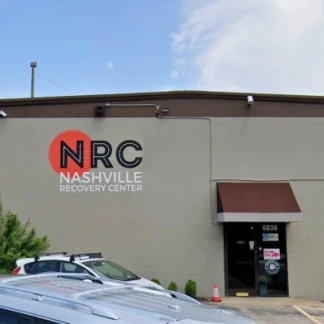White Stone Recovery Center
White Stone Recovery Center is a private rehab located in Nashville, Tennessee. ...
Nashville Recovery Center (NRC)is a comprehensive dual-diagnosis addiction rehab center located in the heart of Nashville, Tennesse. NAR provides each client with thorough medical, clinical, and psychiatric assessments to help determine the most comprehensive treatment plan for them.
NRC offers clients a full continuum of care with programs designed to start with the highest level of accountability and therapeutic support. Their levels of care and services include the following:
Initiating the recovery journey, NRC offers a medically supervised detox program. In this environment, individuals can safely withdraw from substances, with expert medical professionals on hand to ensure comfort and safety throughout the process.
NRC’s 21-day residential treatment program offers immersive therapeutic care. Here, individuals participate in structured programming that can include daily group therapy, experiential therapy, and relapse prevention. Residents stay in a home-like setting with comfortable lounge areas and semi-private, gender-specific, spacious rooms.
NRC’s intensive outpatient program (IOP) is specifically designed for those who require a more intensive structure than traditional outpatient. IOP features therapeutic process groups designed to treat the underlying causes that show up in self-defeating behavioral patterns and addictions.
For those seeking intensive treatment while still maintaining a connection to their daily lives, NRC’s partial hospitalization program (PHP) is the optimal choice. This program provides the robustness of residential care while permitting some level of daily routine.
Holistic practices like yoga and meditation at NRC underscore the interconnectedness of mind, body, and spirit, acting as anchors in the recovery process.
Contact us for more information: (833) 615-2019

Connect with Nashville Recovery Center by calling their admissions team directly.
(833) 615-2019 Website Get DirectionsResearch clearly demonstrates that recovery is far more successful and sustainable when loved ones like family members participate in rehab and substance abuse treatment. Genetic factors may be at play when it comes to drug and alcohol addiction, as well as mental health issues. Family dynamics often play a critical role in addiction triggers, and if properly educated, family members can be a strong source of support when it comes to rehabilitation.
Group therapy is any therapeutic work that happens in a group (not one-on-one). There are a number of different group therapy modalities, including support groups, experiential therapy, psycho-education, and more. Group therapy involves treatment as well as processing interaction between group members.
In individual therapy, a patient meets one-on-one with a trained psychologist or counselor. Therapy is a pivotal part of effective substance abuse treatment, as it often covers root causes of addiction, including challenges faced by the patient in their social, family, and work/school life.
Group therapy is any therapeutic work that happens in a group (not one-on-one). There are a number of different group therapy modalities, including support groups, experiential therapy, psycho-education, and more. Group therapy involves treatment as well as processing interaction between group members.
In individual therapy, a patient meets one-on-one with a trained psychologist or counselor. Therapy is a pivotal part of effective substance abuse treatment, as it often covers root causes of addiction, including challenges faced by the patient in their social, family, and work/school life.
In individual therapy, a patient meets one-on-one with a trained psychologist or counselor. Therapy is a pivotal part of effective substance abuse treatment, as it often covers root causes of addiction, including challenges faced by the patient in their social, family, and work/school life.
White Stone Recovery Center is a private rehab located in Nashville, Tennessee. ...
Nashville Addiction Recovery is a private rehab located in Nashville, Tennessee....
Hermitage Hall is an adult addiction treatment center in Nashville, Tennessee. T...
Alcohol and Drug Council is a private rehab located in Nashville, Tennessee. Alc...